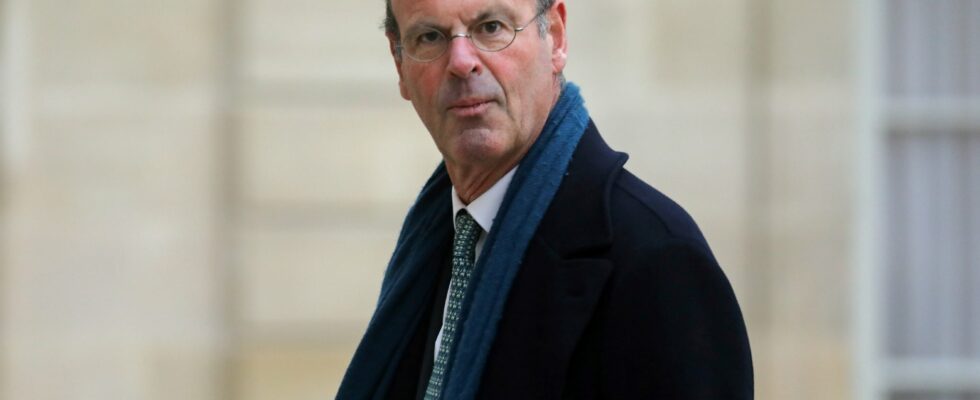Governments change, but bad habits persist. On February 18, 2024, Bruno Le Maire, then Minister of the Economy, appeared on TF1’s 8 p.m. show to announce a sharp downward revision of France’s growth forecasts for the current year, going from 1.4 % to 1%. Almost a year later, the new boss of Bercy, Eric Lombard, is preparing to do the same, according to information from Opinion. The Treasury services are now counting on 0.8% in 2025, compared to 1.1% previously.
In fact, this projection is now more in line with those of the various institutes, whether private or public. The Banque de France anticipates an increase in GDP of 0.9%, while the French Observatory of Economic Conditions (OFCE) was banking on 0.8% just before the examination of the Barnier finance bill in October. It is rather the moment chosen for such a revision which raises questions. “I don’t really know how they manage to make such a precise forecast without knowing if there will be a budget and what will be in it,” said economist Adrien Auclert, co-author, last July, with Xavier Ragot and Thomas Philippon, a note for the Economic Analysis Council on the recovery of French public finances. “Making a forecast without a budget is almost like predicting the weather without a model,” adds Mathieu Plane, deputy director of the analysis and forecasting department of the OFCE.
The 5% deficit objective out of reach
Still, lower growth means that tax revenues will be less important for the State. Very bad news, as the public deficit is expected to exceed 6% of GDP at the end of the past year, far, very far from the 4.4% targeted in the finance bill for 2024. Without forgetting that at last spring, Bruno Le Maire had already reassessed this objective to 5.1%. “The typical calculations usually made are as follows: one point less growth corresponds to 0.6 points more public deficit. If the growth forecast goes from 1.1% to 0.8%, this would result in 0.2 points more on the public deficit,” explains Adrien Auclert. A new gap that our public finances cannot afford.
The 5% objective which was set by Michel Barnier appears clearly out of reach. “It’s unrealistic. Even 0.8% growth seems quite optimistic unless there is some sort of economic miracle,” continues this professor at Stanford. For Mathieu Plane, the question is above all whether we will manage to get back below the 6% mark. “If we can get closer to 5.5%, that would already be very good,” he believes. According to the newspaper The Worldthe objective would rather be 5.4%.
France no longer holds the cards
Especially since France is not the sole master of its destiny. “Germany, our main trading partner, is in the middle of an industrial crisis and is also going through a period of political uncertainty. On the United States side, there is this question about the application of Donald Trump’s program. In view of his latest statements, the president-elect seems to want to maintain his objective of increasing customs tariffs for products coming from abroad”, lists Eric Dor, director of economic studies at the IESEG School of management.
Not to mention a very tight schedule. François Bayrou promised a budget in mid-February. A new version which risks being distorted compared to the previous one. The 60 billion budgetary efforts that Michel Barnier had put on the table should be shattered. “It is difficult to see the new Prime Minister succeeding in passing a budget which would have the ambition of the Barnier project. We will have to give guarantees to everyone, on the left as well as on the right. And things risk getting worse if the “we must concede a certain return on pension reform”, warns Eric Dor.
The French economy can no longer wait
The more time passes, the more the French economy suffers from this budgetary indecision. “Everyone is navigating a bit by sight. We have no precise idea of what the tax policy is going to be,” underlines Adrien Auclert. With concrete consequences. “Companies do not know in what sauce they will be eaten, which pushes them to wait and see in terms of investment. In addition, French households remember what European countries experienced at the time of the crisis of sovereign debt. These concerns are transformed into savings,” assures Eric Dor. In the meantime, the special law applies. “If we had to be content with it all year long, the budget deficit would exceed 6%. This would put us completely at odds with the European Commission,” recalls Eric Dor, even though France has already been placed in excessive deficit procedure.
Even if François Bayrou managed to extract a vote on the budget from the National Assembly without being censored, the risk of a new dissolution from July 8 cannot be ruled out. “Nothing guarantees that the situation would be more easily manageable following new elections, however, believes Eric Dor. The composition of Parliament only reflects the fragmentation of public opinion. All European countries are faced with it. The big difference between France and its neighbors is that it is not used to these situations. Political personnel are therefore not trained to negotiate coalitions. And at the start of the next school year, again… the headache of voting on the budget will rest.
.
